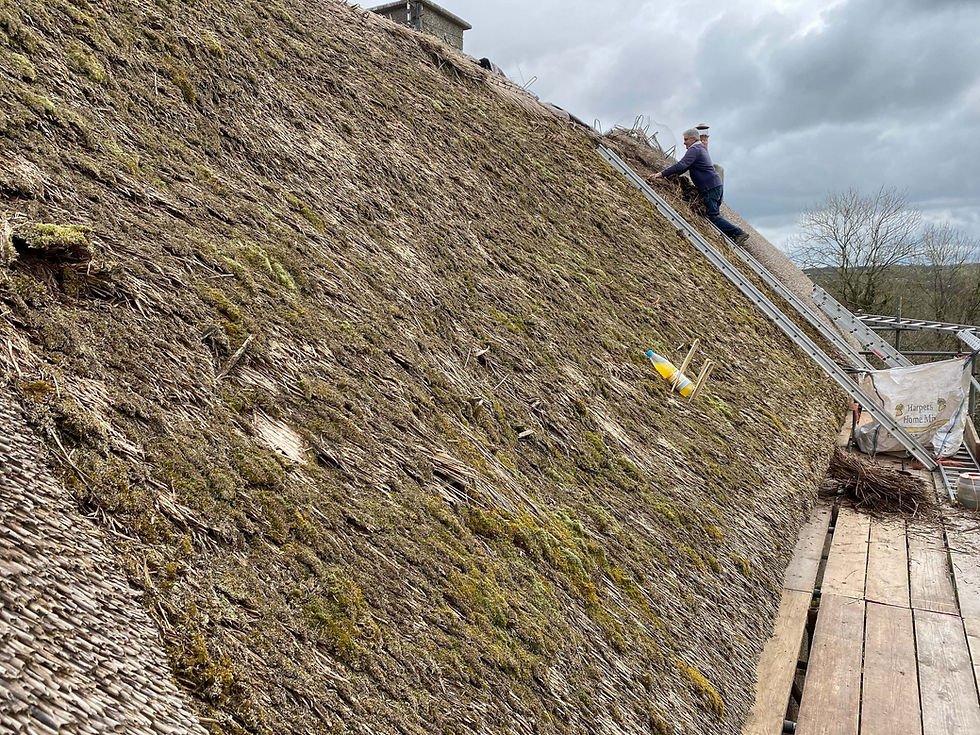Water Reed vs Wheat Reed: Which is Best for Your Home?
- jamessrogers120
- Sep 4
- 2 min read

Choosing the right material is one of the most important decisions when it comes to thatching your roof. The two main options are water reed and wheat reed (often called Devon reed). Both are natural, traditional materials with their own benefits — but which one is best for your home?
What is Water Reed?
Water reed is a tall, strong reed that grows naturally in wetlands and riverbeds.
Lifespan: Typically lasts 25–40 years
Appearance: Creates a sharper, more angular finish
Durability: Harder and more resistant to weathering than wheat reed
Best for: Properties in exposed locations or where long lifespan is a priority
Find out more about our re-thatching services using water reed.
What is Wheat Reed (Devon Reed)?
Wheat reed is produced from the stems of locally grown wheat, making it a more traditional choice in many parts of Devon.
Lifespan: Usually lasts 15–25 years
Appearance: Softer, rounder look, often considered more “cottage-like”
Availability: Traditionally used in Devon and blends beautifully with local architecture
Best for: Cottages and heritage homes where an authentic Devon look is desired
See how we use traditional Devon reed thatching to preserve the character of local cottages.
Which Should You Choose?
There’s no single answer — it depends on your property and your preferences:
If you want longevity and strength, water reed may be the better option.
If you want a softer, traditional Devon finish, wheat reed could be ideal.
Many homeowners choose based on a balance between appearance, cost, and lifespan.

Expert Advice in Devon
At J Rogers Thatching, based in North Tawton, we work with both water reed and wheat reed, carrying out re-thatching and repairs across Okehampton, Chagford, South Zeal, Sampford Courtenay, Iddesleigh, and surrounding villages.
We’re always happy to provide advice to help you decide which material best suits your home.
Thinking about a re-thatch or repair? Contact us today for free, no-obligation advice.



Comments